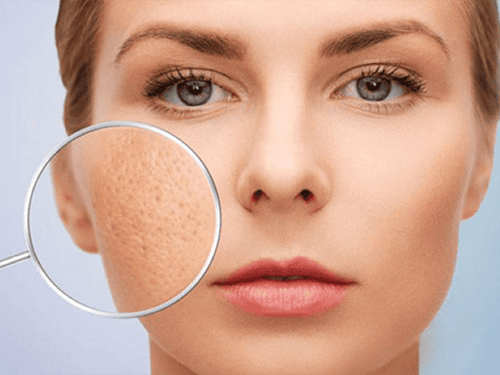This is an automatically translated article.
Psoriasis increases the risk of eye problems like uveitis. Uveitis is an inflammation of the inside of the eye, leading to eye pain, redness, blurred vision and sensitivity to light, and decreased vision.
1. Uveitis
Uveitis is an inflammation of the inside of the eye that can destroy eye tissue. This condition causes poor vision or blindness. There are many types of uveitis, depending on where the swelling is located such as:
Anterior uveitis is the most common, usually affecting the front of the eye Medial uveitis affecting the body Posterior uveitis affects the back of the eye If all the cells of the uvea are inflamed, it will lead to uveitis. The uvea is a primarily vascular anatomical structure, located between the sclera (the white part of the eye) and the retina (the innermost membrane formed by photoreceptors, light-sensitive cells). The uvea can be divided into three parts, respectively anterior-posterior:
Iris: The ring of pigment muscle tissue expands and contracts, acts like a diaphragm, regulating the diameter of the anterior foramen (pupillary) ); Biliary body: Composed of muscles, allowing the set of movements necessary to focus on the observed image (adaptation process); Choroid: Rich in blood vessels, it irradiates most tissues of the eyeball. The cause of uveitis is closely related to inflammation. For example, a toxic substance can get into the eye and cause inflammation. Uveitis can also be caused by an autoimmune disease, which means your body is attacking itself and causing inflammation, infections, and tumors in your eyes or other parts of your body, too.

Bệnh viêm màng bồ đào khiến tầm nhìn kém đi hoặc gây mù lòa
2. The link between psoriasis and uveitis
Psoriasis is an autoimmune disease in which the body's immune system attacks organs and tissues. In addition to causing itchy, red, scaly patches on the skin, psoriasis also affects the eyes. Treatment for psoriasis uveitis depends on which part of the eye is affected.
Patients with psoriasis uveitis may experience the following symptoms:
Red eyes Painful or blurred vision and sensitivity to light Small dots or spots in vision If you experience any Any of these symptoms should be seen by a doctor for diagnosis and treatment.

Mắt đỏ là triệu chứng của bệnh viêm màng bồ đào do bệnh vẩy nến
3. Diagnosis and treatment
To diagnose uveitis, your doctor will ask about your symptoms and do a physical exam. In addition, the doctor will ask the patient to perform some tests such as: blood tests, skin tests or X-rays. Your doctor will also give you a thorough eye exam.
The first step in treating the disease can be eye drops such as corticosteroids that have anti-inflammatory effects. Patients can use eye drops to avoid scarring.
If you have medial, posterior, or uveitis, your doctor may give you an injection or an oral immunosuppressant. It is very important to treat the uveitis that causes blurred vision due to psoriasis, to help prevent serious complications.

Xét nghiệm máu giúp chẩn đoán bệnh viêm màng bồ đào
Vinmec International General Hospital with a system of modern facilities, medical equipment and a team of experts and doctors with many years of experience in medical examination and treatment, patients can rest assured to visit. examination and treatment at the Hospital.
To register for examination and treatment at Vinmec International General Hospital, please book an appointment on the website for the best service.
Reference source: webmd.com
Please dial HOTLINE for more information or register for an appointment HERE. Download MyVinmec app to make appointments faster and to manage your bookings easily.
MORE
Psoriasis causes Psoriasis treatment options Psoriasis and risk of type 2 diabetes













